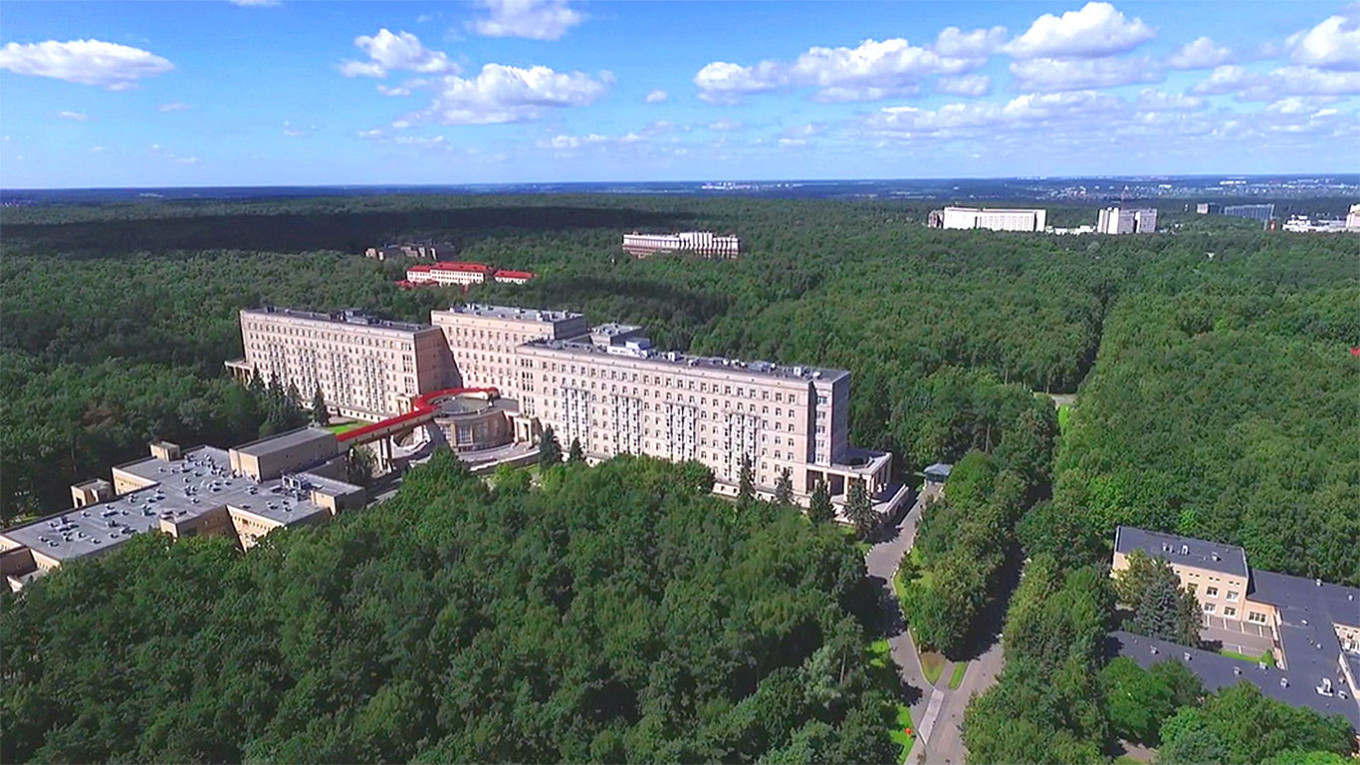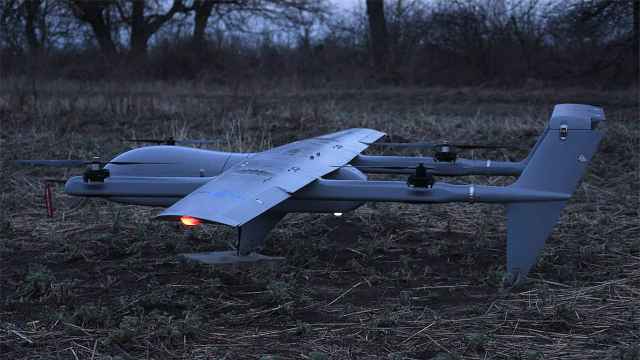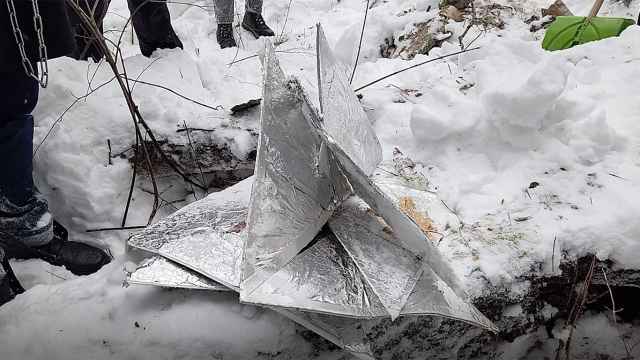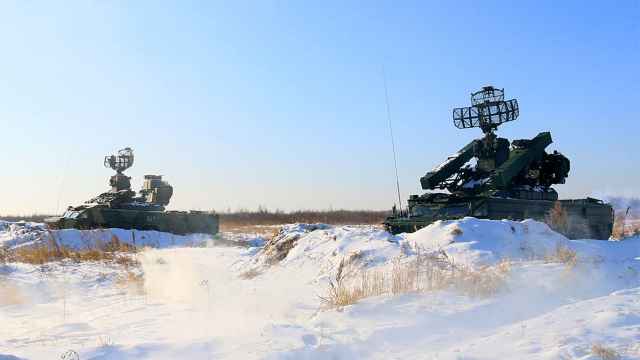The Kremlin has signed a deal to build a bomb shelter on the grounds of Moscow’s most elite hospital days after unprecedented drone strikes on the Russian capital, according to a procurement contract cited by The Moscow Times’ Russian-language service.
The 800-person bunker for VIP patients and personnel is expected to be constructed at the Moscow Central Clinical Hospital, a protected facility, in near-record time.
All construction of what is officially termed a “civil defense protective structure” is expected to be completed by Dec. 20 this year.
The Russian presidential administration signed the deal worth 35 million rubles ($433,000) last Friday, according to its listing on the state procurement website.
The contractor is allotted 15 days to approve the bomb shelter’s design.
Procurement documents include special communication systems “for officials under state protection” in their list of required facilities.
The bomb shelter is expected to protect from both a powerful blast wave and radiation within a 10-kilometer zone.
Also listed are several entrances and an emergency exit, main and auxiliary rooms, as well as a sophisticated ventilation and heating system to purify the air from “gaseous means of mass destruction” and to allow “wartime medical procedures.”
Russia’s Defense Ministry said it downed eight drones over Moscow early Tuesday morning, while unconfirmed media reports said up to 32 drones were involved in the attack. No serious casualties were reported.
One of the drones was reportedly shot down just a few kilometers from President Vladimir Putin's Novo-Ogaryovo residence outside Moscow.
Earlier in May, Moscow claimed that Ukraine attempted to assassinate Putin in a drone attack on the Kremlin’s Senate House, the site of the presidential office and apartment.
Ukraine adheres to a policy of neither confirming nor denying involvement in attacks on Russian territory.
A Message from The Moscow Times:
Dear readers,
We are facing unprecedented challenges. Russia's Prosecutor General's Office has designated The Moscow Times as an "undesirable" organization, criminalizing our work and putting our staff at risk of prosecution. This follows our earlier unjust labeling as a "foreign agent."
These actions are direct attempts to silence independent journalism in Russia. The authorities claim our work "discredits the decisions of the Russian leadership." We see things differently: we strive to provide accurate, unbiased reporting on Russia.
We, the journalists of The Moscow Times, refuse to be silenced. But to continue our work, we need your help.
Your support, no matter how small, makes a world of difference. If you can, please support us monthly starting from just $2. It's quick to set up, and every contribution makes a significant impact.
By supporting The Moscow Times, you're defending open, independent journalism in the face of repression. Thank you for standing with us.
Remind me later.






